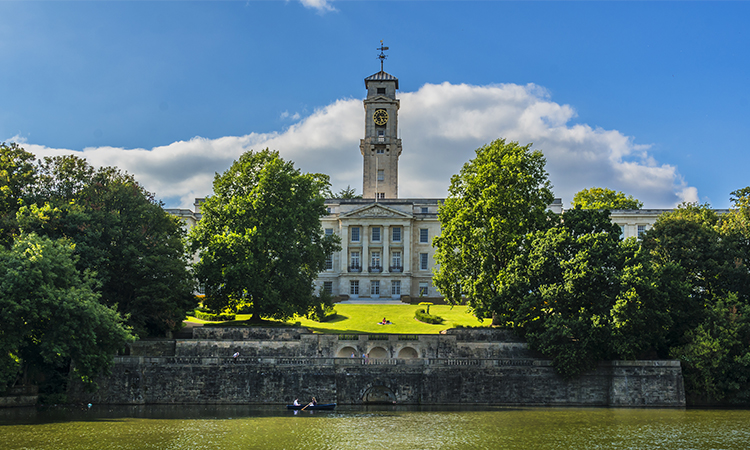University of Nottingham: £2m pilot to develop UK’s first wind turbine blade recycling solution
A major project to develop wind turbine blade recycling in Britain for the first time has been given the go-ahead after winning a UK Government grant.
The £2m three-year project involves a consortium led by Aker Offshore Wind, the University of Strathclyde and the Lightweight Manufacturing Centre, with contributions from academic and industry partners including the University of Nottingham, global waste management firm SUEZ, composite distributor GRP Solutions and composite part manufacturer Cubis.
The initiative aims to ensure a more sustainable future for the global wind industry and the wider composites manufacturing industry – accelerating the drive towards net zero emissions and waste and creating new skills and job opportunities in the UK.
At present, when giant turbine blades reach the end of their working lives, there are only two options for managing the waste: send them to a landfill or to waste-to-energy plants where they are combusted with significant carbon emissions.
The project aims to commercialise a revolutionary fibre recovery method pioneered by the University of Nottingham and further developed by the University of Strathclyde to separate the glass-fibre and resin components in composites and recover the glass fibres which can then be reprocessed using a novel method developed by the University of Strathclyde, moulded, and reused in other industries, such as the motor trade and the construction industry.
Experts at the University of Nottingham will support the development of a fluidised bed fibre recovery process which it has been investigating for many years.
“Large volumes of glass fibre composites are used in wind turbine production and currently there is no established recycling solution for end-of-life blades – but this project aims to develop a solution that reprocesses glass fibre composite waste and helps us to move towards a circular economy.”
Dr Thomas Turner, Deputy Director of the EPSRC Future Manufacturing Hub in Composites at Nottingham
The environmental benefits from this project cannot be understated as waste from wind turbine blades alone are expected to reach around 2 million tonnes globally by 2050, and UK volumes of composite waste already exceed 100,000 tonnes per year.
Aker Offshore Wind has pledged its support to trade body WindEurope’s call for a Europe-wide landfill ban on decommissioned wind turbine blades by 2025 and considers this project a crucial step towards setting a new standard for the industry.
With thousands of turbines being erected and built as part of the transition away from fossil fuels, the project partners applied to the UK Government for support to position the UK as the global leader in blade recycling and provide a futureproofed solution for turning waste into new resources.
Innovate UK, the UK Government’s innovation agency, awarded £1.3m to the project, with Aker Offshore Wind contributing more than £500,000 to make the project a reality.

